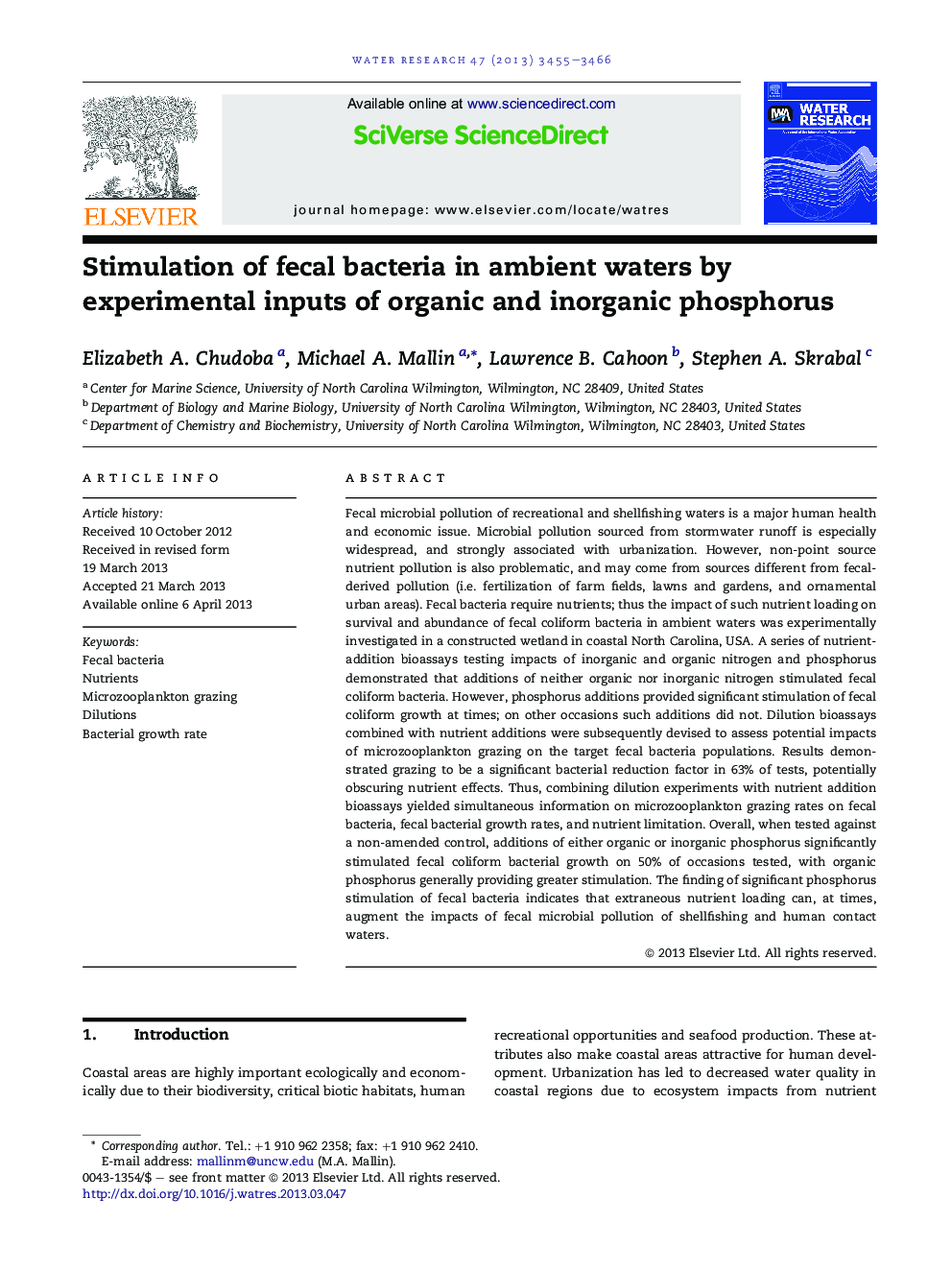| Article ID | Journal | Published Year | Pages | File Type |
|---|---|---|---|---|
| 4481809 | Water Research | 2013 | 12 Pages |
•Microzooplankton grazing reduces fecal bacteria counts and skews bioassay results.•Dilutions plus nutrient additions measure both grazing and nutrient input impacts.•Phosphorus additions significantly stimulated fecal bacteria growth in ambient water.•Nitrogen additions failed to significantly stimulate fecal bacterial growth.
Fecal microbial pollution of recreational and shellfishing waters is a major human health and economic issue. Microbial pollution sourced from stormwater runoff is especially widespread, and strongly associated with urbanization. However, non-point source nutrient pollution is also problematic, and may come from sources different from fecal-derived pollution (i.e. fertilization of farm fields, lawns and gardens, and ornamental urban areas). Fecal bacteria require nutrients; thus the impact of such nutrient loading on survival and abundance of fecal coliform bacteria in ambient waters was experimentally investigated in a constructed wetland in coastal North Carolina, USA. A series of nutrient-addition bioassays testing impacts of inorganic and organic nitrogen and phosphorus demonstrated that additions of neither organic nor inorganic nitrogen stimulated fecal coliform bacteria. However, phosphorus additions provided significant stimulation of fecal coliform growth at times; on other occasions such additions did not. Dilution bioassays combined with nutrient additions were subsequently devised to assess potential impacts of microzooplankton grazing on the target fecal bacteria populations. Results demonstrated grazing to be a significant bacterial reduction factor in 63% of tests, potentially obscuring nutrient effects. Thus, combining dilution experiments with nutrient addition bioassays yielded simultaneous information on microzooplankton grazing rates on fecal bacteria, fecal bacterial growth rates, and nutrient limitation. Overall, when tested against a non-amended control, additions of either organic or inorganic phosphorus significantly stimulated fecal coliform bacterial growth on 50% of occasions tested, with organic phosphorus generally providing greater stimulation. The finding of significant phosphorus stimulation of fecal bacteria indicates that extraneous nutrient loading can, at times, augment the impacts of fecal microbial pollution of shellfishing and human contact waters.
Graphical abstractFigure optionsDownload full-size imageDownload high-quality image (169 K)Download as PowerPoint slide
